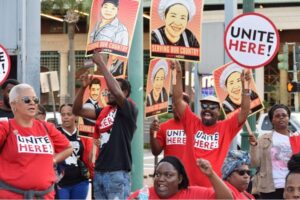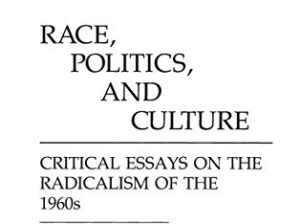It is of course a complete accident that the same year that marks the tenth anniversary of the failure of federally maintained levees, incompetent disaster relief, and rampant profiteering in the face of a relatively pedestrian hurricane known as Katrina should also mark the fiftieth anniversary of the publication by an obscure Assistant Secretary of Labor named Daniel Patrick Moynihan of The Negro Family: The Case for National Action…The chance of history that brought the anniversaries of the Moynihan Report and Hurricane Katrina together helps elucidate both the long-term implications of Moynihan’s dominance over a large portion of American discourse regarding inequality—a discourse that bears a great deal of responsibility for the effects of that fairly mundane storm—and the long historical temporalities that produced Katrina as a storm of unthinkable tragedy. Indeed, Katrina did not form to the southeast of the Bahamas on August 22, 2005. It formed when Moynihan helped consolidate the culture of poverty thesis in 1965. It formed when a conception of freedom grounded in contract, work-discipline, and various versions of moral economy defeated its multiple historical alternatives. It formed when American politics ceased to effectively challenge these defeats. In fact, if we further widen our lens, we can see its beginnings in the monumental transition from slavery to freedom that is celebrating its 150th anniversary this year.





